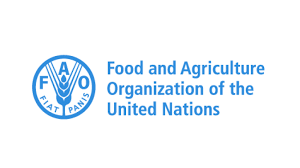Food and Agriculture Organization (FAO): Nourishing the World and Protecting the Planet

Let's explore the Food and Agriculture Organization (FAO), its definition, establishment, location, significance, historical examples, and opportunities to join as staff or volunteer. The FAO plays a pivotal role in addressing global food security challenges, promoting sustainable agriculture practices, and ensuring the sustainable use of natural resources.

The Food and Agriculture Organization (FAO) is a specialized agency of the United Nations, founded on October 16, 1945. It serves as the leading international organization focused on eradicating hunger, improving nutrition, and fostering sustainable agricultural development. The FAO works closely with governments, organizations, and communities to achieve food security and promote rural development worldwide.
The FAO's headquarters is located in Rome, Italy. Situated in the heart of Rome, the FAO benefits from its proximity to other United Nations agencies, including the World Food Programme (WFP) and the International Fund for Agricultural Development (IFAD). Additionally, the FAO operates through a network of regional and country offices across the globe.

Significance
Food Security: The FAO plays a significant role in addressing food security challenges. It promotes sustainable agricultural practices, supports small-scale farmers, and enhances access to nutritious food for vulnerable populations. The FAO's initiatives aim to reduce hunger, eradicate malnutrition, and ensure a sustainable food supply chain for present and future generations.

Sustainable Agriculture: The FAO is at the forefront of promoting sustainable agricultural practices. It provides technical assistance, research, and knowledge sharing to support the adoption of environmentally friendly farming methods, conservation of natural resources, and the mitigation of climate change impacts on agriculture. By promoting sustainable agriculture, the FAO strives to achieve a balance between food production and environmental protection.
Natural Resource Management: The FAO recognizes the importance of sustainable management and utilization of natural resources. It works to protect biodiversity, conserve forests, promote responsible fisheries, and improve water management practices. Through its programs, the FAO contributes to the preservation of ecosystems, the enhancement of rural livelihoods, and the sustainable use of natural resources.

Examples from History
Green Revolution: In the mid-20th century, the FAO played a critical role in the Green Revolution, a period of increased agricultural productivity. The FAO facilitated the introduction of high-yielding crop varieties, improved farming techniques, and access to agricultural inputs, leading to significant increases in food production and alleviating hunger in many developing countries.

Zero Hunger Challenge: In 2012, the FAO launched the Zero Hunger Challenge, a global initiative to eradicate hunger, improve food security, and promote sustainable agriculture. The initiative aims to address all aspects of the food system, from production to consumption, while focusing on the most vulnerable populations. The FAO's engagement in the Zero Hunger Challenge showcases its commitment to achieving a world free from hunger.
Opportunities to Join
If you are interested in working with the FAO as staff or volunteer, consider the following options:
Employment: The FAO offers employment opportunities in various fields, including agriculture, fisheries, forestry, nutrition, and policy development. Visit the FAO's official website and navigate to the Careers section to explore job vacancies and application procedures.

Volunteer: The FAO also provides opportunities for individuals to volunteer and contribute to its programs and projects. Volunteer positions may vary based on location and operational needs. Check the FAO website or contact your local FAO office for information on volunteering opportunities and how to apply.

The Food and Agriculture Organization (FAO) is a vital international organization dedicated to combating hunger, promoting sustainable agriculture, and ensuring the responsible management of natural resources. Through its initiatives and collaborations, the FAO plays a crucial role in improving global food security, supporting rural development, and fostering sustainable agricultural practices. By joining the FAO as staff or volunteers, individuals can contribute to these noble causes and make a positive impact on the lives of millions of people around the world.
Sources:
- Food and Agriculture Organization (FAO) Official Website - http://www.fao.org/
- FAO at 75: Growing Together for a Sustainable Future - http://www.fao.org/documents/card/en/c/CA9697EN
- FAO Statistical Yearbook 2020 - http://www.fao.org/documents/card/en/c/ca9697en









